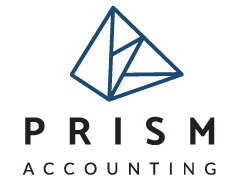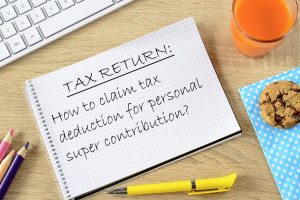Tax time can be stressful, especially if you are not well prepared. Now we are into the new Financial Year and it’s not too late to have a fresh start. Here are some tax tips for salary earners to help you be better prepared for your next tax season.
1. Keep receipts for all work-related expenses
If your total claim for work-related deduction exceeds $300, you need to keep written evidence for all your expenses (not just for those in excess of $300). Purchases of goods and services are usually evidenced by a Receipt or a Tax Invoice from the supplier.
2. Keep Logbook for Car Expenses
Logbook will help you work out the percentage of your work or business-related car use. You can claim that percentage of your total car expenses for the income year, including depreciation of the car cost and interest you paid on the car loan. You must keep a logbook for at least 12 consecutive weeks for the first year you are using this method. You need to keep a new logbook when your travel pattern changes or every 5 years.
Download Logbook Template.
Keep in mind that selling your car, for which logbook method had been used to claim the expenses, involves balancing adjustment. You need to keep the purchase and sale documents as well as history of logbook claims for your accountant to be able to calculate the adjustments.
3. Keep Diary Records for the following:
- Worked from home.
If you work from home, you may be able to claim running expenses based on set rate of 52c per hour. If you have a usual pattern of working from home, you only need to keep diary records for a representative four-week period.
- Work-related travel.
Travel diary will help you work out your actual work-related and private expense portions of your trip. If you travel away from home for six or more nights in a row, you need to keep a travel diary, unless you are receiving travel allowance to travel in Australia and your claim does not exceed the amounts allowed by the ATO.
- Minor work-related expenses <$10 not exceeding $200 in total.
Whether your total work-related expenses exceed $300 or not, you do not need to keep receipts for those items and can get written evidence by making your own records.
4. Use a card to pay for work-related expenses.
While bank statements are not a substitution for proper receipts, they can help you track your work-related expenses. Knowing the details of expense, you can obtain a copy of the receipt from the supplier if the original receipt was lost.
5. Keep details of Self Education Expenses
To claim self-education expenses for courses of education, you must be able to demonstrate that the course is sufficiently connected to your current work activity. The course must either maintain or improve the skills required in your current work or be likely to result in increased earnings in your current work.
Keep all the Tax Invoices for the course fees together with the details of the course to be able to easily prove the connection. If you take HELP loan to pay for the fees, make sure to keep CAN Notices.
Keep details of all the other expenses relating to your self-education. Not all expenses will be deductible but even non-deductible expenses can offset or reduce the $250 reduction of Self-Education deduction.
6. Get Private Health Insurance
If you and your family (including your Spouse and Dependents) do not have the appropriate level of Private Patient Hospital Cover, and your income is above certain threshold, you may be required to pay Medicare Levy Surcharge. The Surcharge is payable in addition to Medicare Levy at the rate of 1%, 1.25% or 1.5% of your adjusted income (Income for MLS Purposes).
7. Keep track of your Super
From 1 July 2017, employees are able to make Tax Deductible (Concessional) Personal Superannuation Contributions to a superfund of their choice to boost their super savings and benefit from concessional tax treatment in superfund environment. Concessional Super Contributions are capped at $25,000 per year.
Keep in mind that Super Guarantee, Salary Sacrifice and other amounts that your employer pays to your superfund on your behalf also count towards your Concessional Contribution Cap. You need to keep track of your employer’s contributions to work out how much you can contribute to you super without breaching the $25,000 cap.
From 1 July 2018, members with total superannuation balance of less than $500,000 at 30 June of the Previous Financial Year, can make carry-forward concessional super contributions for the unutilised Concessional Caps. If you did not fully utilise the 25,000 Cap in 2019 Financial Year, you can make a “catch-up” contribution in 2020.
Contributions count when the payment is received by your Superfund, not when the payment is made. It is important to keep track of all contributions that you, your employer, or others make on your behalf to avoid exceeding the caps and paying extra tax.
Disclaimer: All the information provided on this website is of general nature and does not constitute tax, legal or financial advice. It does not take into account your personal circumstances and is not intended to replace consultation with a qualified professional.







